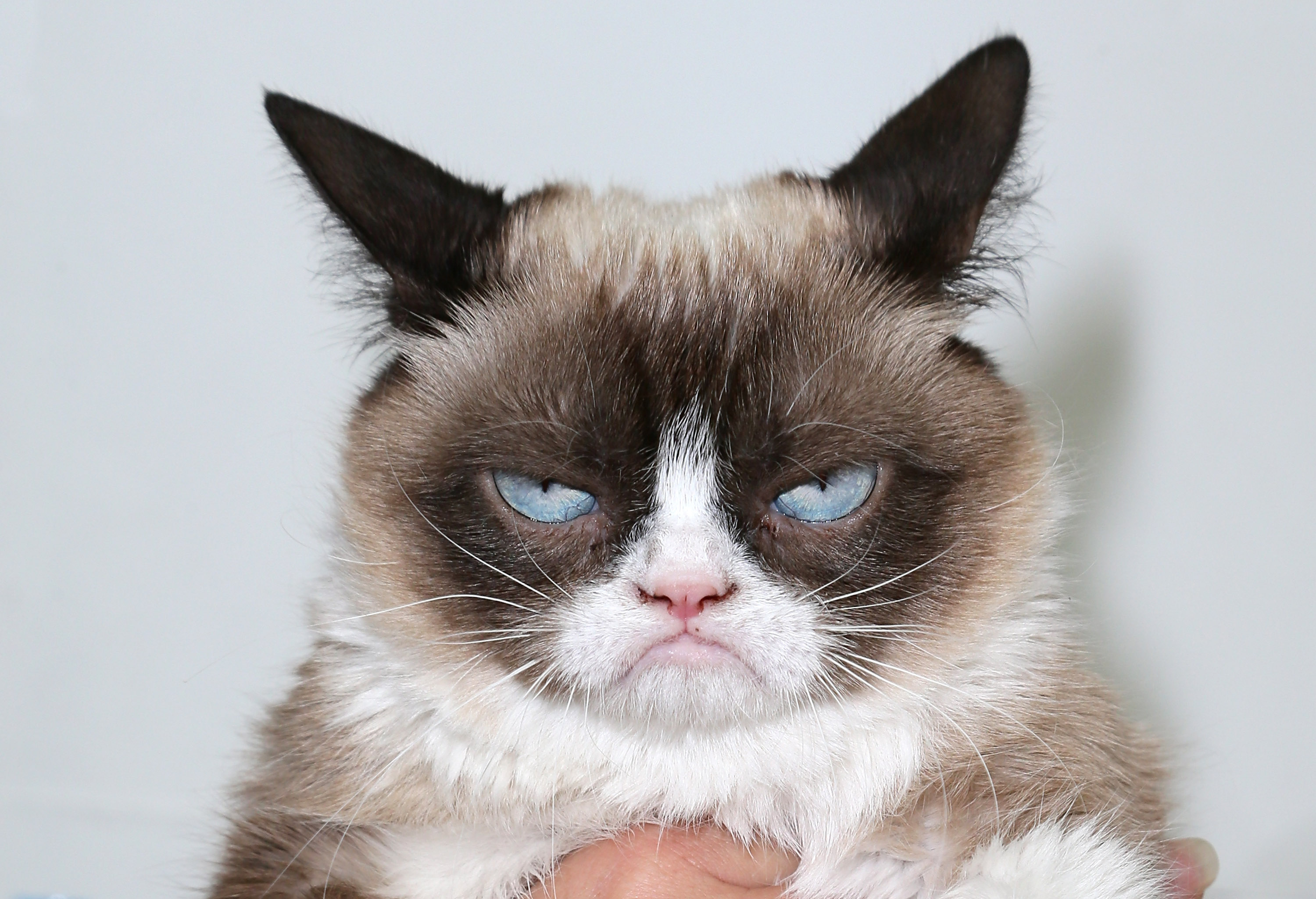 The case before us is Grumpy Cat Limited v. Grenade Beverage LLC, No. SACV152063DOCDFMX, 2018 WL 2448126 (C.D. Cal. May 31, 2018) (PDF here). It has something to tell us about how not to handle the distinction between conditions and obligations.
The case before us is Grumpy Cat Limited v. Grenade Beverage LLC, No. SACV152063DOCDFMX, 2018 WL 2448126 (C.D. Cal. May 31, 2018) (PDF here). It has something to tell us about how not to handle the distinction between conditions and obligations.
A coffee shop signed a licensing agreement with the owners of Grumpy Cat. It used the Grumpy Cat name and image to market iced coffee and non-iced coffee products, including ground coffee. In previous proceedings, Grumpy Cat’s owners sued the coffee shop and won: in January 2018 a jury awarded Grumpy Cat’s owners $710,000 in damages, finding that the coffee shop had infringed their intellectual property by selling Grumpy Cat beverages that weren’t iced coffee.
But the court had yet to decide whether the coffee shop had infringed the license or was liable for breach of contract, with the latter presumably resulting in reduced damages. That’s what the court decided this time around. The issue was whether the coffee shop had failed to satisfy a condition, such that the additional products were outside the scope of the license, making the coffee shop liable for infringement, or whether the coffee shop had failed to perform an obligation, making it liable for breach of contract. The court held that the coffee shop had failed to satisfy a condition.
Let’s look at this more closely.
The source of this dispute was the definition of “Products” in the license agreement. It was defined as “a line of Grumpy Cat-branded coffee products, or other additional products within the Product Category [defined as non-alcoholic beverages] that may, upon the Parties’ mutual approval, be marketed hereunder.”
The first problem was that Grumpy Cat’s owners claimed that the license was limited to only iced-coffee products, even though that’s not what the definition of “Products” said. The first proceeding was devoted to sorting that out in favor of Grumpy Cat’s owners.
The next problem was whether the reference to additional products was an obligation (or covenant, using the court’s old-timer speak) or a condition. If it was an obligation, that would mean that Grumpy Cat’s owners granted the coffee shop an exclusive license to sell non-alcoholic beverage products with a promise to receive approval before selling them. By selling them before receiving that approval, the coffee shop would be liable for breach of contract.
If it was a condition, other beverages would be excluded from the exclusive license until they were approved. By selling them before receiving approval, the coffee shop would be liable for infringement.
Here’s my take:
As the language at issue was squeezed into an autonomous definition, there wasn’t any way to express an obligation or a condition clearly. (If you want to know how to do that, MSCD goes into excruciating detail.) The court was reduced to winging it. For example, it said the following:
A review of the four corners of the License Agreement makes clear that the parties intended that the “additional products” term is a condition that excludes additional products from the license, absent mutual approval—rather than a grant of an exclusive license “to” all non-alcoholic products. See id. ¶ 2 (a) (granting rights to use the licensed property “in” the Product Category [non-alcoholic beverages], rather than rights “to” the Product Category).
Regarding the “in” and “to” stuff, I can only say lol wut.
So the contract should have been drafted differently. The simplest fix would have been to limit the license to iced-coffee (and actually include the “iced-” part). Why mention products that might be added? That doesn’t accomplish anything. Adding “unless the parties agree otherwise” (or a variant) to a sentence just signals that the parties might change things. Whatever slight purpose that might serve is more than offset, in this case, by the confusion it caused.

Framing the discussion as a contrast between “obligations” and “conditions” makes clear thinking on the matter just about impossible.
The useful distinction is, I submit, between conditional and unconditional obligations, prohibitions, grants, etc.
If Widgetco promises to reimburse its sales rep her expenses if she submits them by the tenth of the following month, Widgetco has a conditional obligation to pay the sales rep. The sales rep has no obligation to submit her expenses. It just clouds things to ask, ‘Is submitting expenses a condition or an obligation?’ It’s a sales rep option (not her duty), and if she timely submits, the condition on Widgetco’s duty to pay is satisfied, and if Widgetco doesn’t pay, Widgetco is in breach.
In the Grumpy Cat matter, it looks as if the coffee shop had an unconditional right to use the G.C. name on iced coffee, and a conditional right to use the name on other beverages. If the coffee shop didn’t satisfy the condition regarding other beverages, it didn’t have the right to use the G.C. name on them, and doing so would be a violation of background law.
Only if the contract made unlicensed use of the G.C. name a contract breach (in addition to its being a violation of background law) would damages for breach of contract apply.
Capeesh? No, cappucino.
If the provision is treated as an obligation, would that mean that the owners of Grumpy Cat could not have granted a license to any other person to market a non-alcoholic beverage (that was not coffee)?